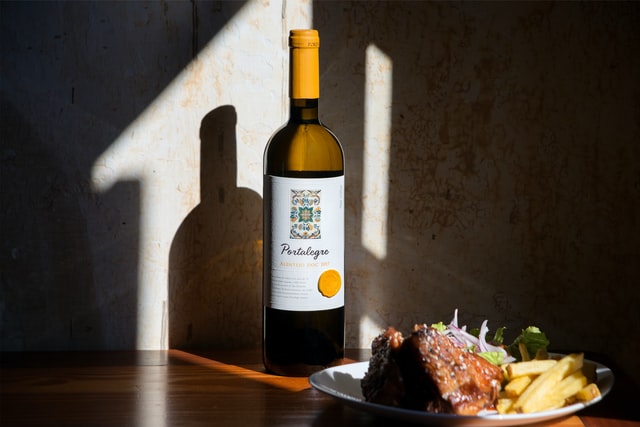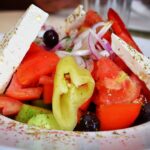Have you ever heard or tried the Mediterranean diet? Well, you’re in luck because we’ve prepared a Mediterranean diet meal plan guide for you to follow.
The Mediterranean diet has been around since 1960, and as its name suggests, this diet plan has been invented by civilizations around the Mediterranean Sea. Scientific research has also proven it to be exceptionally healthy than the diet plans known in the United States, which surprisingly also lowers the risk of developing diseases. Among the known benefits of this amazing diet plan includes assisting you in losing weight, has preventive maintenance properties against cardiovascular diseases, type 2 diabetes and premature death.
The Mediterranean diet is a mix of multiple recipes and dishes, therefore there is no one right way to follow it.
Foods to Consume in this Mediterranean Diet Meal Plan Guide
While it’s difficult to decide which dish to eat daily when following the Mediterranean diet, eating fish and seafood is recommended at least twice a week. However, there is one thing that is consistent throughout the Mediterranean diet – it requires you to consume healthy plant foods and eat less animal meat. But all the “healthy” foods you eat from the Mediterranean diet meal plan will not do you any good if you will not include regular exercise, engage in a little sports (non-professional but just between friends and acquaintances), enjoy life, especially when you dine.
The Mediterranean lifestyle originated from huge gatherings among the Greeks, Italians, Turks and other civilizations in that area; therefore you should also follow this ancient tradition.
Use this as a guide when following the Mediterranean diet meal plan:
- Vegetables: Tomatoes, carrots, spinach, cucumbers, onions, brussels sprouts, cauliflower, kale, broccoli, etc.
- Fruits: Apples, dates, peaches, oranges, figs, grapes, bananas, pears, melons, strawberries, etc.
- Nuts and seeds: Almonds, sunflower seeds, hazelnuts, macadamia nuts, pumpkin seeds, cashews, walnuts, etc.
- Legumes: Beans, chickpeas, pulses, lentils, peanuts, peas, etc.
- Tubers: Potatoes, turnips, sweet potatoes, yams, etc.
- Whole grains: Whole oats, buckwheat, barley, pasta rye, whole-grain bread, corn, whole wheat and brown rice.
- Fish and seafood: Salmon, shrimp, mussels, trout, tuna, crab, sardines, oysters, clams, mackerel, etc.
- Poultry: Chicken, duck, turkey, etc.
- Eggs: Chicken, quail and duck eggs.
- Dairy: Cheese, yogurt, Greek yogurt, etc.
- Herbs and spices: Garlic, mint, rosemary, nutmeg, pepper, sage, basil, cinnamon, etc.
- Healthy Fats: Extra virgin olive oil, avocados, avocado oil, and olives.
The key to a healthy lifestyle is eating whole, single-ingredient foods.
What to Drink
Your primary drink should be water, because nature created our bodies to respond positively with this essential element. Then the second glass that you need to reach for is a glass of wine, preferably red wine, as it contains a good amount of antioxidants that has tremendous health benefits. However, we discourage you to drink wine if you’re suffering or recovering from alcoholism, because it might do more harm than good. You may enjoy coffee and tea as they too have some health-giving properties, but avoid beverages and fruit juices that contain a high amount of sugar. This Mediterranean diet meal plan is all about all-natural and unprocessed foods to give you the maximum health benefits.
A Week’s Menu Sample on Mediterranean Diet Meal Plan
You can try out these food variation based on the Mediterranean diet that’s so rich it could fill your week with unique dishes for breakfast, lunch and dinner. Prepare the dishes in the amount that you need and how you prefer to consume them.
Monday
Breakfast: Oatmeal and Greek yogurt with strawberries.
Lunch: Whole-grain sandwich with vegetables.
Dinner: Olive oil dressed tuna salad with a 4.6-ounce fruit of your choice.
Tuesday
Breakfast: Oatmeal with raisins.
Lunch: Leftover tuna salad from the previous night.
Dinner: Feta cheese, olives and tomato slices on salad.
Wednesday
Breakfast: Vegetable-fused omelet with onions and tomatoes plus a piece of fruit of your preference.
Lunch: Whole-grain sandwich laden with fresh vegetables and cheese.
Dinner: Mediterranean lasagna.
Thursday
Breakfast: Yogurt with nuts and sliced fruits.
Lunch: Leftover lasagna from the previous night.
Dinner: Brown rice with vegetables and broiled salmon.
Friday
Breakfast: Stir-fried vegetables and eggs in olive oil.
Lunch: Greek yogurt with strawberries, oats and nuts.
Dinner: Grilled lamb chops with baked potato and salad.
Saturday
Breakfast: One whole apple (freshly picked), eaten with oatmeal, nuts and raisins.
Lunch: Whole-grain sandwich with vegetables.
Dinner: Mediterranean pizza (made from whole wheat), with vegetables, olives and cheese.
Sunday
Breakfast: Omelet with vegetables and olives.
Lunch: The previous night pizza leftovers.
Dinner: Potato and vegetables served with grilled chicken and any fruit of your choice for dessert.
Since almost all of the ingredients of just about any Mediterranean dish is A+ in health-giving nutrients, there’s no longer any need to count calories or track macronutrients. We hope you’ve been enlightened by our Mediterranean diet meal plan and will soon incorporate it to your life and start reaping the benefits.








3 Responses
That was intriguing . I love your quality that you put into your work. Please do move forward with more like this.
I believe everything posted made a lot of sense. But, consider this, what if you were
to create a killer post title? I ain’t saying
your information isn’t solid, however suppose you added a title
to maybe grab people’s attention? I mean Mediterranean Diet Meal Plan Guide
is kinda vanilla. You should peek at Yahoo’s home page and note how they create article headlines to get viewers
interested. You might add a video or a picture or two
to grab readers interested about what you’ve
written. Just my opinion, it might make your posts a little bit more interesting.
Hi friends, fastidious article and good urging commented at this
site, I am really enjoying by these health topics.